Science Illustrated delivers natural science, break through discoveries and an understanding of the world for the entire family. Packed with stunning photography and in-depth editorial it’s a visually spectacular gateway to the world looking into the beginning of life to distant objects in the universe.
Win Subscribe today FOR YOUR CHANCE TO WIN A SPRING GARDEN TOUR OF TASSIE FOR 2!
Science Illustrated
MEGAPIXEL // JAMES WEBB vs HUBBLE
MEGAPIXEL // MONKEY RIDER
Probe breaks all speed records • In the Parker Solar Probe’s quest to venture ever closer to the Sun’s atmosphere, the probe has reached incredible speeds – and will keep getting faster until Christmas.
Feel with your hair • Researchers may have discovered a previously unknown way in which we can perceive the sense of touch.
Astronomers observe a rare cosmic collision between worlds of ice • Scientists have spotted an unknown phenomenon 1800 light years from Earth.
Thousands of treasures may await discovery in the Amazon • New laser scans are revealing that the world’s biggest rainforest may be hiding traces of far more human history than was previously believed.
ChatGPT predicts fights between animal species • 256 fearsome animals fought for their lives in a simulation that took the size, strength, and IQ of the animal into account.
Researchers reveal cancer cell defences • Researchers have discovered how cancer cells heal themselves during chemotherapy.
Plants react to touch, but also lack of touch • We know that plants react to touch, but now scientists have found a range of responses, including when touching ends.
Humans have tilted the Earth • Meltwater from icebergs shifts Earth’s axis of rotation – but new evidence shows that groundwater pumping does so too, and could one day influence the climate.
NASA finds planetary system with seven super-Earths • Data from the retired Kepler Space Telescope held a treasure.
Babies recognise native language • Newborns can apparently recognise their native language. Researchers have a clear message for parents-to-be.
What will happen to the Chernobyl power plant? • A 36,000-tonne ‘steel hangar’ encases the Chernobyl power plant’s Reactor 4’, the location of the worst nuclear disaster of all time, which took place back in 1986. But what are the long-term plans for Chernobyl’s still-radioactive interior?
Is a vegan diet unhealthy for kids? • “I have heard that children who go vegan become malnourished and lack essential proteins and vitamins. Is this true?”
…flies always die on their backs? • “Dead flies on the window sill are almost always lying with their bellies up. Why do they die upside down?”
Why do we shiver in the cold?
How long does it take for a Lego brick to leave the body? • “My three-year-old daughter has twice swallowed a Lego brick. How long does it take to leave her system again?”
Why are some icebergs blue? • “My friends went on a once-in-a-lifetime Antarctic cruise and one thing they kept saying was how blue some of the icebergs were. Is this an optical effect, or is the ice blue?”
Is it dangerous to get pregnant in space?
…you wake a bear from hibernation? • “I have heard that bears are dangerous, when they wake up from hibernation. What if you accidentally woke one up?”
Why do some people see ghosts? • “I have several friends who believe in ghosts, and one who claims to have seen something. I’ve never experienced anything paranormal myself. Why?”
Which animal eats the most people? • “You often hear that the mosquito is the biggest killer of humans because it can transmit disease. But which animal kills the most people in order to actually eat them?”
YOUR FAMILY TREE HAS BEEN UPROOTED • >...
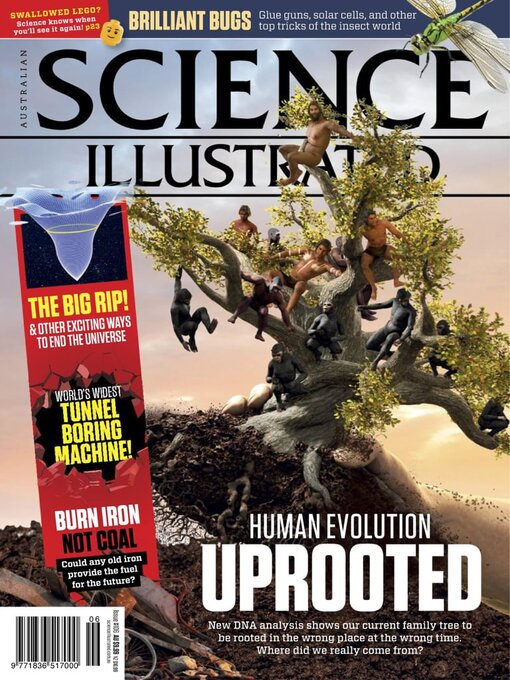
 Issue 106
Issue 106
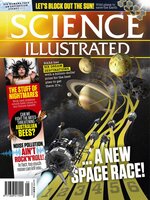 Issue 105
Issue 105
 Issue 104
Issue 104
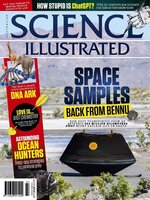 Issue 103
Issue 103
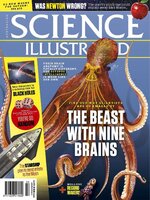 Issue 102
Issue 102
 Issue 101
Issue 101
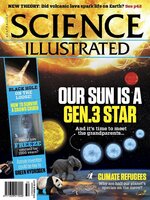 Issue 100
Issue 100
 Issue 99
Issue 99
 Issue 98
Issue 98
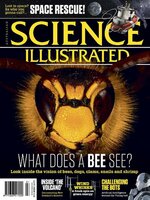 Issue 97
Issue 97
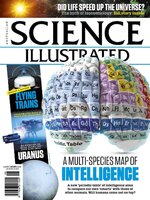 Issue 96
Issue 96
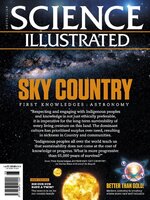 Issue 95
Issue 95
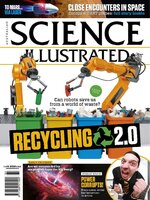 Issue 94
Issue 94
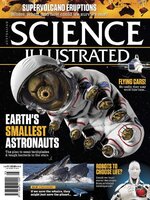 Issue 93
Issue 93
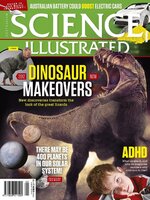 Issue 92
Issue 92
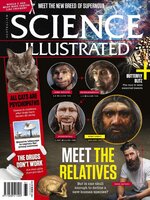 Issue 91
Issue 91
 Issue 90
Issue 90
 Issue 89
Issue 89
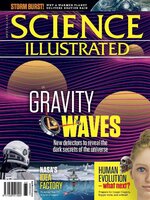 Issue 88
Issue 88
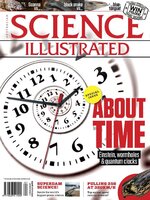 Issue 87
Issue 87
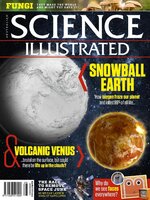 Issue 86
Issue 86
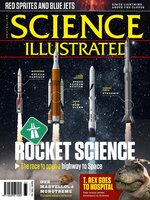 Issue 85
Issue 85
 Issue 84
Issue 84
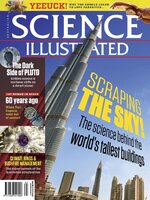 Issue 83
Issue 83
